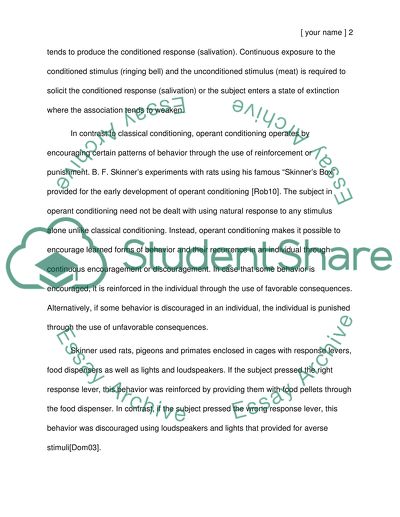Psychology, classical conditioning and operant conditioning Research Paper. Retrieved from https://studentshare.org/psychology/1470451-psychology-classical-conditioning-and-operant
Psychology, Classical Conditioning and Operant Conditioning Research Paper. https://studentshare.org/psychology/1470451-psychology-classical-conditioning-and-operant.


